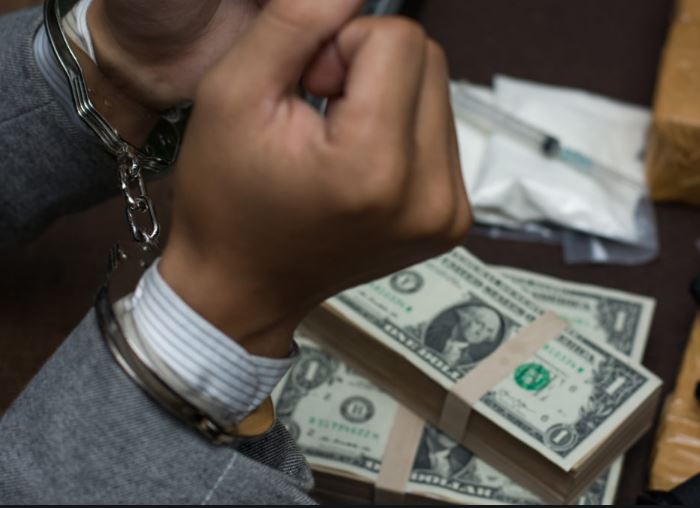DC Federal Embezzlement Lawyer
Embezzlement is the taking of money, property, or assets without the authority to do so. This crime could be charged in a few different ways depending on the form of the embezzlement. For example, a federal healthcare fraud charge can be made when benefits or monies from a government healthcare program are taken. Real estate fraud could be charged when the proceeds from a real estate deal are embezzled.
If you are facing federal embezzlement charges, contact an experienced DC federal embezzlement lawyer. Let a seasoned federal criminal defense attorney fight for you.
What are the Penalties for Federal Embezzlement?

The penalties for embezzlement depend on the amount of money involved and the way in which it was taken. For instance, aggravated identity theft carries stiff penalties. If an individual is accused of embezzling money or property and uses someone else’s identity or identifying information to do so, it carries a two-year mandatory prison sentence.
An individual who embezzles less than $1,000 of public funds will be looking at a maximum penalty of one year in jail and a fine of $100,000. If the person embezzles more than $1,000 of public funds, then they could face a maximum of ten years imprisonment and up to $250,000.
Speak with a DC federal embezzlement attorney to find out more about what penalties a specific charge may bring.
Long-Term Consequences
There are of several serious long-term consequences of a federal embezzlement conviction in DC. A conviction for embezzlement can never be erased or expunged and the potential prison sentences are lengthy. A conviction for federal embezzlement charges could impact future employment, professional licensing, and other administrative penalties. Also, a conviction can affect one’s ability to get educational or other civil benefits.
Aggravating Factors to Embezzlement Charges
One of the main factors that cause an increase in the penalties a defendant may face is the amount of the money involved, which is called the loss amount and is governed under the United States Sentencing Guidelines. The United States Sentencing Guidelines helps establish the advisory sentencing guidelines range.
There is also a question of the role the defendant played in the embezzlement and whether the individual was a leader or had a small role in the crime. Another aggravating factor is the number of harmed individuals involved. If the crime impacts a large number of people, the penalties could be enhanced.
How do Prosecutors Treat Embezzlement Cases?
Federal prosecutors take embezzlement cases seriously and push for harsh sentences. Judges take these cases seriously as well and often impose long jail sentences on an individual convicted of embezzlement.
It is important to know that the prosecutor carries the burden of proof. Depending on the context, the prosecutor must prove that a person intentionally took the property or assets of another person without permission. These are the basic elements of an embezzlement crime. Specific types of embezzlement such as healthcare fraud may have additional elements to prove.
Intent does not have to be proved directly, there may be an indirect or circumstantial way to prove intent. For example, bank records might show a series of improper transactions that indicate the person intended to do something illegal. There could be emails, text messages, or other communications on social media that indicate someone’s intent.
How a DC Federal Embezzlement Attorney Could Help
If you have been accused of committing a federal embezzlement crime, reach out to a seasoned attorney right away. The sooner you contact a DC federal embezzlement lawyer, the sooner they could begin building a strong defense. Call today to set up a consultation and see how a legal professional could help you.
David Benowitz and his firm are the best strategic and compassionate teams you will work with. Mr. Benowitz and his team are diligent and proactive, which is further enhanced by David’s methodic and strategic approach to law. My case was a very complicated and emotionally charged case involving classified information, where I was facing three indictments, two carrying life sentences and one carrying 20 years. Mr. Benowitz utilized a network of lawyers coupled with his own strategy to navigate the case to success! I sincerely recommend David Benowitz quite literally with my life.
I found David to be very dedicated to fighting for your loved one’s rights. I also highly appreciated the fact that David kept us informed and empowered throughout the whole process.
Mr. Benowitz is an incredibly knowledgeable and dedicated professional. His commitments to social justice and community outreach are exemplary. I wholeheartedly recommend him for any matter.

















